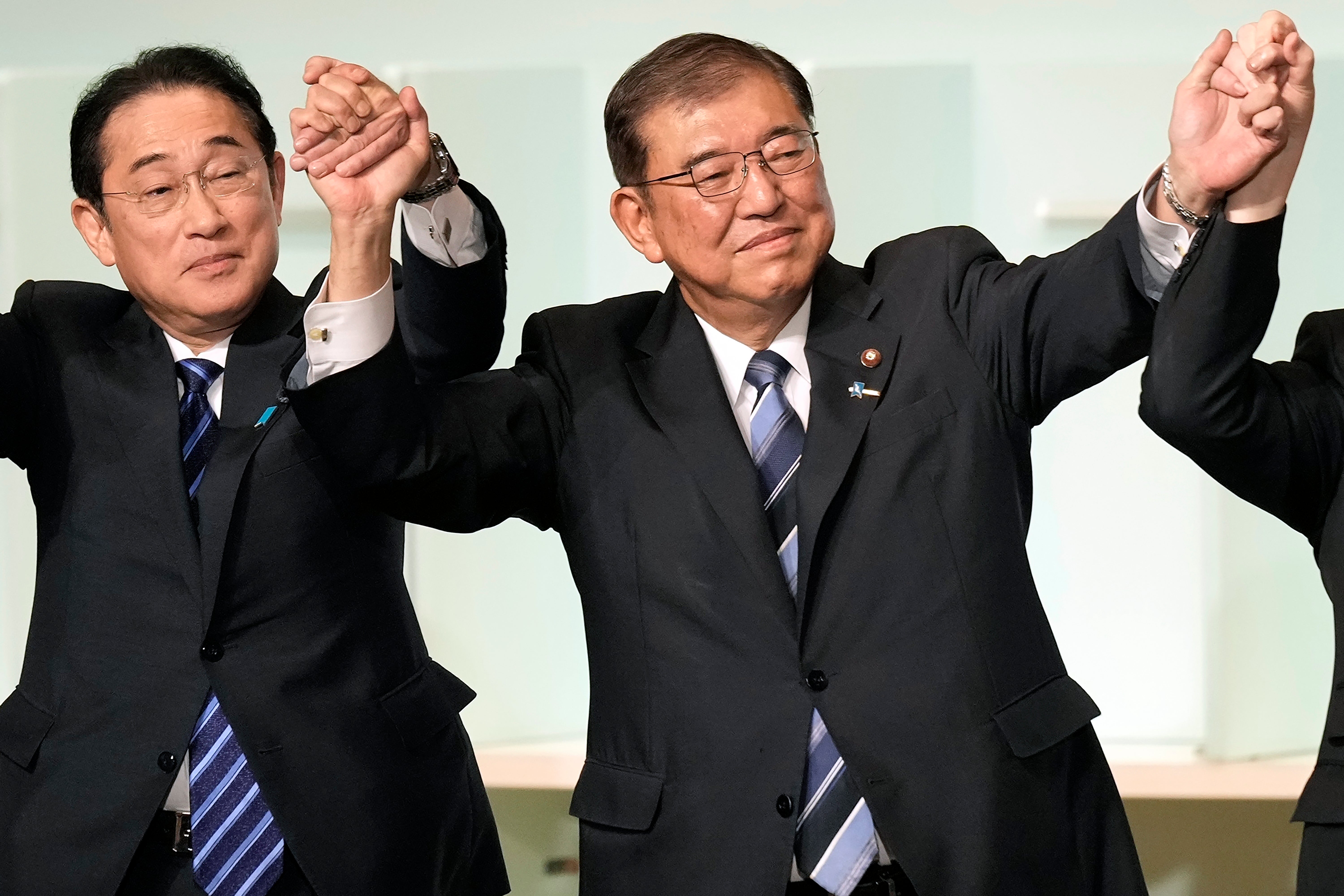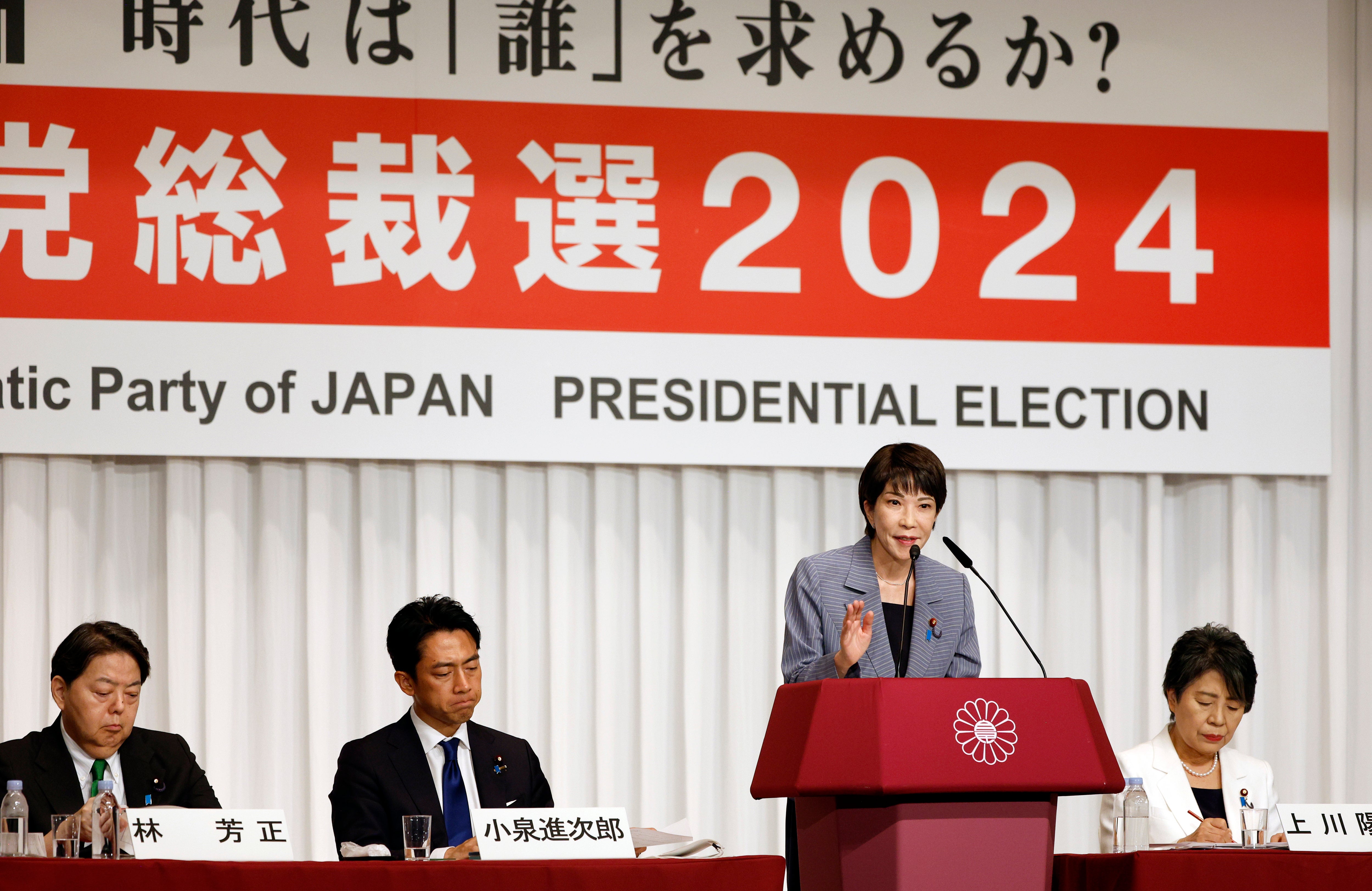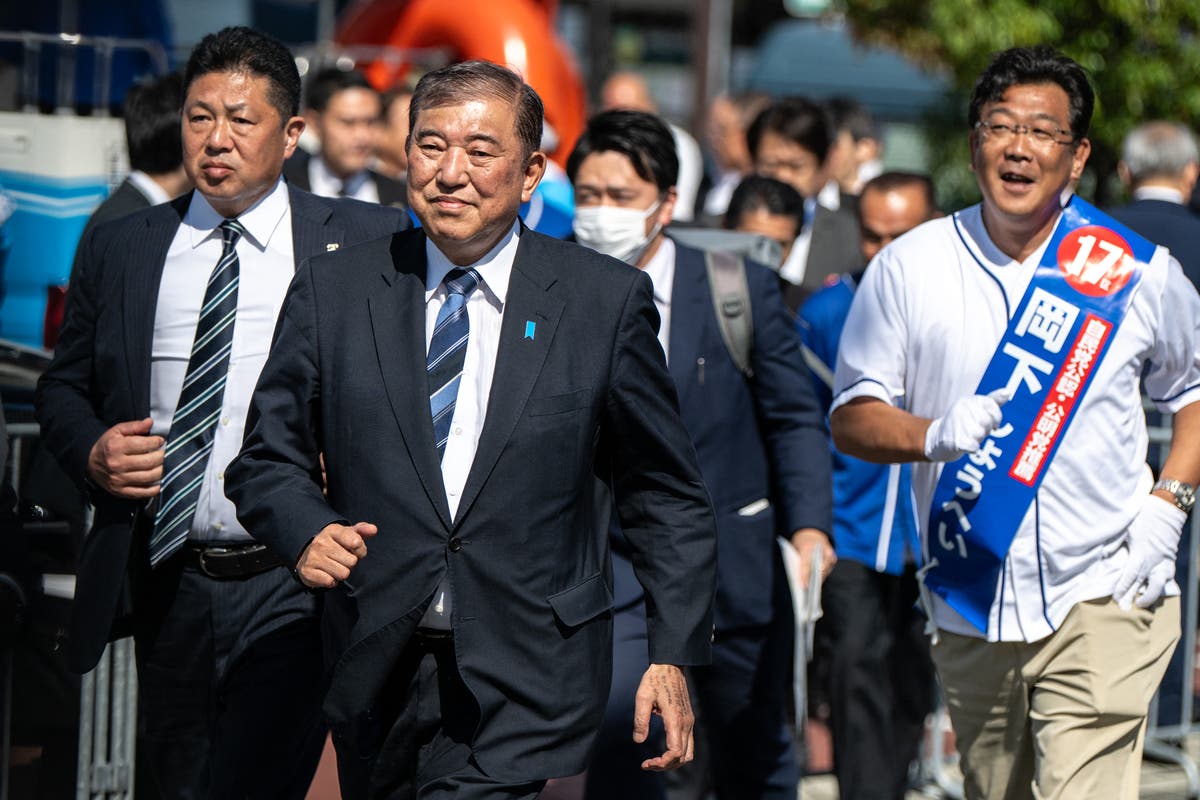Japan heads to the polls on Sunday for one of the most uncertain elections in its recent history, where low turnout is expected to be a key factor despite the result having considerable ramifications for both the country’s future and its international standing.
Normally a beacon of stability in a region of turbulent geopolitics, Japan has been ruled by the same centre-right Liberal Democratic Party (LDP) for 65 of the past 69 years. Its prime minister, Shigeru Ishiba, won his party’s leadership last month and called the snap election to try and shore up his mandate from the public and quell divisions within his own ranks.
Yet polls show this is one of the few elections in post-war Japan where the LDP could fall short of a majority, with its reputation badly damaged by a corruption scandal and a stagnating economy that has ordinary Japanese suffering with rising costs of living.
One poll for the Asahi newspaper this week forecast that the LDP could lose as many as 50 of its 247 seats in the lower chamber and its coalition partner Komeito could end up with fewer than 30, putting the two below the 233 needed for a majority.
That would spell the kind of political uncertainty not seen since 2009, and begin a period of power-sharing talks among parties with a range of views on how Japan can maintain peace and security in the face of increasingly belligerent neighbours China, Russia and North Korea.
Ishiba is seen as a moderate, having expressed cautious support for the right of married couples to have different names and that is it important to “closely monitor public opinion” when it comes to same-sex marriages. His victory in the LDP leadership election earlier this month represents a shift towards the centre after more than a decade defined by the conservative politics of the late Shinzo Abe and his successor Fumio Kishida.
Kishida was eventually forced to resign as party leader after it emerged that money from party fund-raising events had been siphoned off into a secret slush fund, a scandal that has rocked public confidence in Japanese politics and led to 12 MPs having the LDP whip withdrawn.

Ishiba is a soft-spoken former banker and self-confessed “military nerd” who builds model ships and planes in his spare time. As a former defence minister who is strongly in favour of increased US cooperation, he is seen as having strong credentials in an election where national security concerns are growing. During the party leadership campaign he even proposed the idea of forming an Asian version of Nato, though he has tempered his views since coming to power.
If he falls short of a majority, there are still a number of scenarios in which he could cobble together a government. One is the restoration to the party of any victorious “unendorsed” candidates from the slush fund scandal, though this would be unpopular among some members of the public. “Prime minister Ishiba would argue that they have been approved by the voters [themselves],” Yu Uchiyama, professor of political science at the University of Tokyo, told The Independent.
Another is a broader coalition bringing in a third partner such as the Innovation Party, which won 44 seats at the last election, although this would further complicate Ishiba’s ability to pass laws and take bold measures to deal with soaring inflation.
The one outcome that’s not considered likely is a government being formed by the current opposition, even though the latest polls suggest the main rivals to the LDP, the Constitutional Democratic Party (CDP), could increase their seat count to around 140.
That’s because the CDP and the next-largest opposition party, the Japanese Communist Party, differ fundamentally on some of the biggest political issues in the country, from defence and fiscal policy to the use of nuclear energy, which the LDP has vowed to expand in order to meet the country’s growing electricity needs.
The fact that the LDP seem unlikely to be removed from power in spite of the deeply damaging slush fund scandal has left many ordinary Japanese voters disillusioned. Pew Research Center analysis shows that satisfaction with Japan’s democracy is down to just 31 per cent, the lowest level for years and down from 47 per cent in 2017.
As many as 56 per cent of Japanese do not consider themselves aligned to any one party, yet a lack of enthusiasm and a viable opposition to get behind means analysts see little prospect of meaningful change in government. Turnout was down to 55 per cent at the last election, among the lowest rates among developed nations, and could remain at similar levels again this time around.
“This is what I am most worried about,” says Uchiyama. “The LDP cannot be trusted but there are no viable alternatives, so the voters might withdraw from the political world, they might lose interest in politics and apolitical sentiment might prevail. That’s what I’m most afraid [of].”
With moderate voters turning away, parties with more extreme views are starting to gain traction. The populist anti-immigrant Sanseito party, which has described the Covid-19 pandemic as a conspiracy and vaccines as a “murder weapon”, is expected to gain some seats in the lower house of parliament for the first time.
And if Ishiba is unable to produce a convincing result and retain the ruling coalition’s majority, he will be left vulnerable to the formidable right wing of his own party, which may conclude that he is more of a liability than an asset ahead of upper house elections next year.
Ishiba only narrowly won the party leadership over his ultra-conservative rival Sanae Takaichi, a nationalist who has criticised the country’s steadily improving ties with South Korea in recent years. There are concerns that if she is able to become Japan’s first female prime minister it will risk jeopardising a key defence relationship seen as critical to securing the country against a North Korean regime that fired a missile directly over northern Japan in 2022.

Security around the election itself has been significantly heightened in the aftermath of the shocking assassination of former prime minister Abe in July 2022, with extra protections for campaigning politicians and the country’s police refocusing their counter-terrorism efforts on rooting out would-be lone wolf attackers.
Despite Abe’s killing, the threat of political violence is still not seen as being as severe as that in the US election, which takes place just nine days after the vote on Sunday, where much greater partisan fervour and a too-close-to-call race between Kamala Harris and Donald Trump has seen the latter subjected to two assassination attempts.
And even within Japanese media there seems to be as much anticipation around the US vote as this country’s own. What happens in Washington will be highly consequential for Tokyo – here Trump is seen as a protectionist who may call on Japan to contribute more, both financially and militarily, to joint defence programmes with the US. The LDP, Uchiyama says, are already bracing for this outcome: “The people in government are now preparing for Trump again.”



